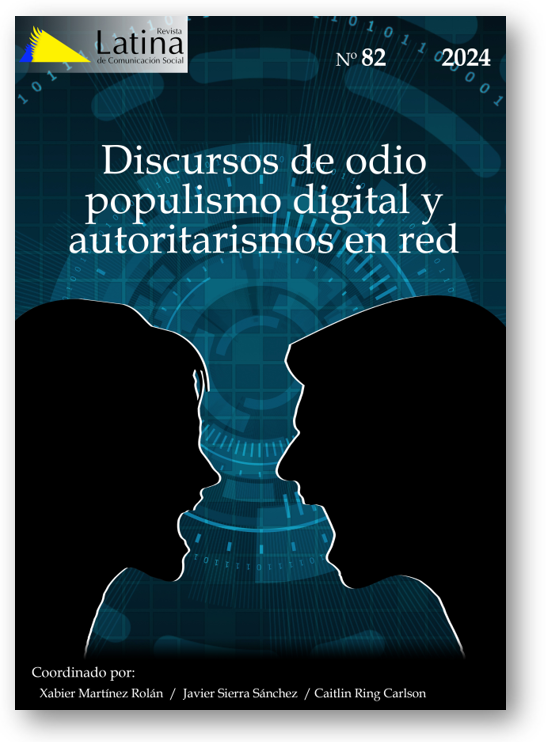Hate speech, digital populism and online authoritarianism
Keywords:
hate speech, populism, political communication, totalitarianism, discriminatory and stereotyped language, astroturfing, digital violence, hate speech, populism, political communication, totalitarianism, discriminatory and stereotyped language, astroturfing, digital violenceAbstract
The virtual sphere has progressively gained prominence until it has become an extension of real life. Far from creating a more horizontal society free of inequalities – predicted by cyber-optimistic opinions – the development of current democracies is clouded by a cyber-pessimistic perspective that prevails over the bonhomist vision of the digital society that accompanied the turn of the century. The construction of a thought based on antagonistic positions that are based on differences, the proliferation of mediated digital communication through social networks and messaging tools under apparent anonymity, and the emergence of new political actors who take advantage of polarization have allowed the germination of hate speech and other communication dysfunctions.
At present, democratic systems are subject to a process of erosion aggravated by the increase in polarization, the rise of political populism and the development of new forms of digital totalitarianism. This sensation of systemic crisis mutates, spreads and evolves through the network and the links that are created through social networks, private messaging tools and other forms of mass communication.
The role of communication as the backbone of these phenomena is at an interesting crossroads. Humanity has never had so many possibilities for connection and communication, and at the same time, symptoms of social exhaustion and a certain ideological regression (for example, denial) are perceived. In this breeding ground, the emergence of political forces that base their communication strategy on the impulses that provoke controversial issues in social networks, the confrontation with globalization -and withdrawal towards nation-states-, in a global-local tension affects society as a whole.
In this issue of RLCS, the research community is invited to delve into the proliferation of hate speech online, analyze the rise of populism and digital authoritarianism. Likewise, the monograph is open to contributions in the field of the temporal evolution of opinions in online communities that requires a combination of sentiment analysis techniques and analysis of social networks. Discourse analysis and critical discourse analysis carried out on the communication formulas that support any manifestation of hate speech, the description and analysis of populism and the comparative analysis of this type of digital practices are also welcome. At this turning point for the development of current democratic societies, scientific contributions and critical thinking from the Academy will be essential for the social advances of this century.
Downloads
References
-

Published
How to Cite
Issue
Section
License

This work is licensed under a Creative Commons Attribution-NonCommercial-NoDerivatives 4.0 International License.



